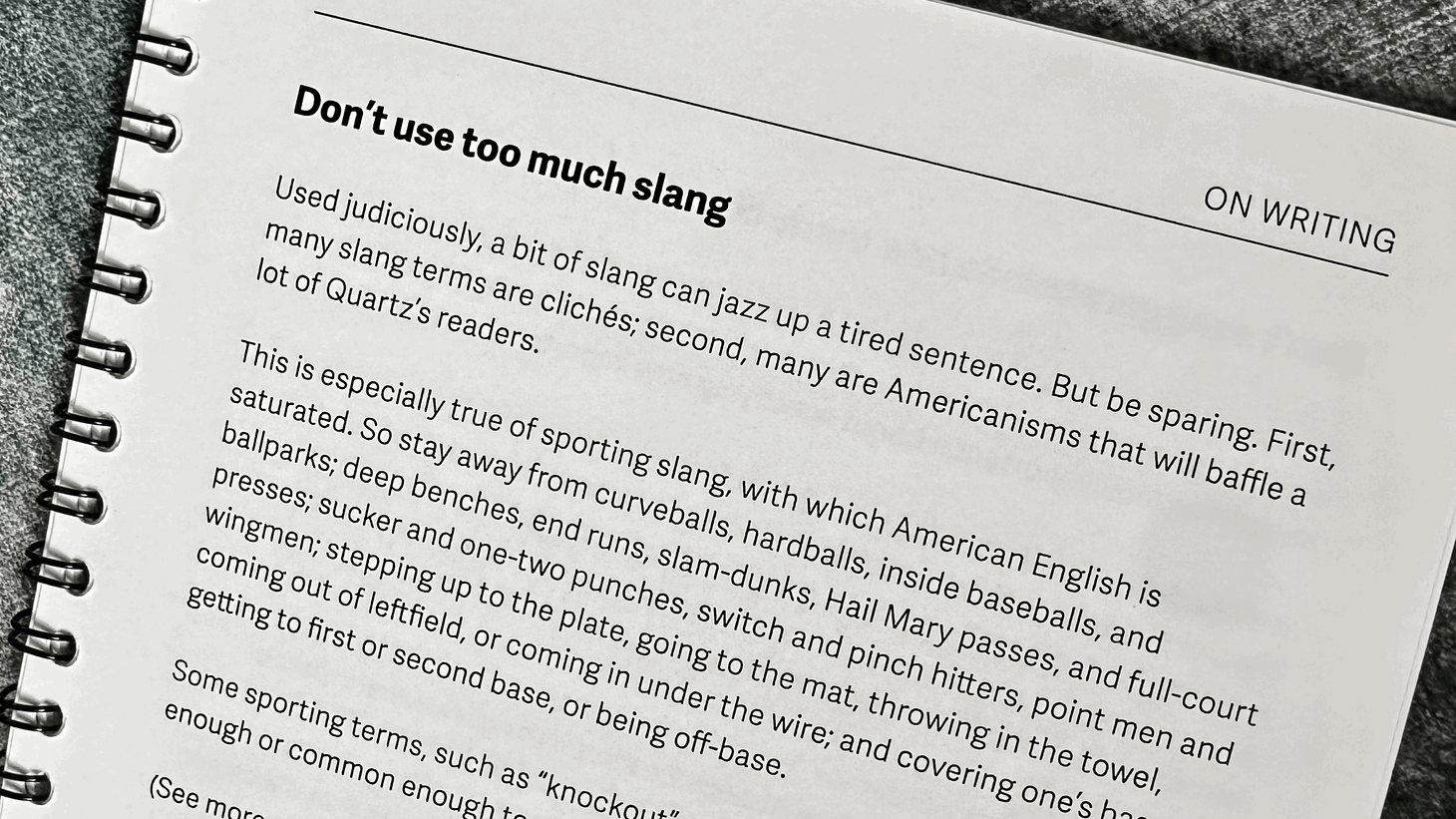Presumed audiences in digital media
Writing for a global audience is hard, but not even trying is a form of nationalism that's pervasive on the web.

You can tell a lot about a news organization's worldview by what it doesn't say. The clearest example: headlines about the president or the economy that don't specify whose president or whose economy because the readers are presumed to be American. But look closely enough, and you'll see the ghosts of presumed readers in nearly every sentence a news organization writes.
My personal favorite these days are articles about work-from-home trends that don't even acknowledge the majority of people—61% in the U.S.—whose jobs simply can't be done remotely. "You" in a headline is often a red flag (so is "red flag"). Another example, common in progressive publications, is the casual use of academic neologisms to describe simple social concepts. Jargon does more work alienating readers than winking at the intended recipient.
Assuming an audience is smart! You might as well write for a defined group of people than a fictitious mass, and imagining your reader makes for better writing. Successful news organizations have a strong idea of whom they're trying to serve, and write abidingly for that group's interests, knowledge, argot, etc. What I'm talking about is not assuming but presuming an audience, to take for granted who's reading without giving the question much thought. Presumption can take many forms, but often cuts along class and, most of all, nationality.
Presumed audiences are particularly interesting in digital media because, of course, anyone might be your reader regardless of who's been imagined on the other end of the server. To the readers who weren't presumed, the disconnect is yawning. They can tell right away when a piece of writing did not even consider their existence.
While I was there, Quartz's assumed readers were global business professionals, with a particular emphasis on global: people identifying as world citizens, travelers, emigrants, cosmopolitans, globalists—anyone curious beyond their national boundaries. Not really being part of that audience at the start, I learned quickly how powerful it was to address them deliberately. This generally just meant not presuming the reader was American: specifying the country in question, remembering it's winter in the southern hemisphere, converting to metric, drawing comparisons across borders, etc.
More importantly, it meant hiring writers who shared English as a language but little else. Such a globally diverse newsroom—half were outside the U.S. and most native to their own country—still had plenty of common references among each other and the assumed readership (visa headaches, remittances, the World Cup, Eurovision) to avoid being a publication for no one. And, honestly, people who speak multiple languages, live "abroad," or work outside the U.S. are better at identifying presumption in their writing, having seen it so often themselves.
I'm sure we erred all the time, but the effort resonated strongly with the assumed readers, who could tell we were writing for them. In surveys, they consistently cited our global worldview as their favorite part of Quartz. Conversely, I think people who felt we didn't have a defined audience were simply not the audience. The connection was particularly strong with readers outside the US, consistently half the audience, who are accustomed to being presumed out of the conversation online. (The posting for my last job calls for shifting Quartz, under its new ownership, to "an audience focus on what Americans are looking for." Fair enough, Americans are an audience, too; I'm not reacting to that.)
Writing for a global audience is harder than isolating your prose in one locale. You might cause an international incident referencing a scheme to hook up with colleagues wearing pants—examples drawn from the brilliant sections on US-centric language in Quartz's style guide by Gideon Lichfield, who pioneered global English writing for us and was famous inside the newsroom for a strict ban on sports metaphors: "Stay away from curveballs, hardballs, inside baseballs, and ballparks; deep benches, end runs, slam-dunks, Hail Mary passes, and full-court presses..." Without dligence, Americanisms are always coming out of left field.
I like reading articles that weren't written for me. On the internet, especially, people understand that most of what they read is not specifically for them. I'm drawing a fine distinction to write about this, but the difference between assuming and presuming your readers is not subtle on the page to those who can't find themselves on it. Just ask anyone reading English-language journalism outside the US. This form of nationalism is pervasive in digital media and presents an enormous opportunity for news organization that reject it.
Read more from Zach
Sign up to receive occasional emails with new posts.

